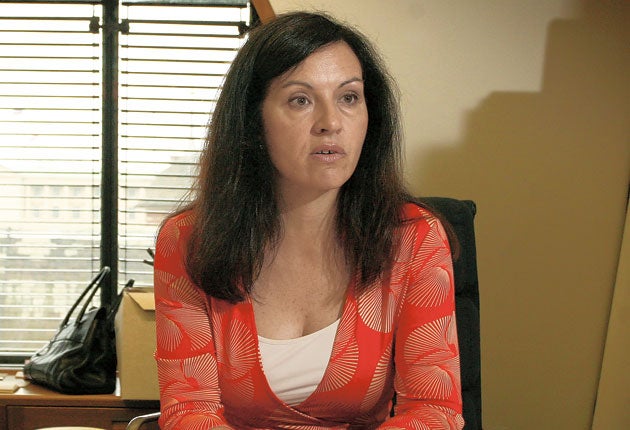Flint blames Brown for lack of women on leadership list

When Caroline Flint stormed out of Gordon Brown's Government last summer, complaining he used women colleagues as "female window dressing", her dramatic departure seemed to do more damage to her than it did to the former prime minister.
Even fellow Labour MPs criticised the move as an act of petulance by a woman angry at not being handed a promotion, rather a principled stand against the sexism in Mr Brown's management style. It was also the finale of a series of controversies that had dogged the former Europe minister.
She fell victim to the long lenses of the photographers in her previous role as housing minister, with details of a briefing note caught by the snappers as she walked into Downing Street. Her move to Europe minister was seen as a demotion. Then came criticisms for a glamorous photo shoot with a Sunday newspaper. As a result, her broadside at Mr Brown's male inner circle smacked of sour grapes.
But now the 48-year-old, who has been an MP since 1997, is planning a comeback. She won plaudits this week for leading the fight against the coalition Government's plan to give anonymity to rape suspects. With Harriet Harman now cultivating a role as a party elder stateswoman, Ms Flint is also proving she is willing to use her feminist streak to push the case for giving more women top jobs in her party. She also plans to put herself forward for the shadow Cabinet when elections are held in the autumn.
While left-winger Diane Abbott was squeezed in to Labour's leadership race this week, Ms Flint is in no doubt about the reasons for the lack of a more credible female candidate. In an interview with The Independent, she said that this failure was part of a toxic legacy left by Mr Brown.
"When Tony Blair left office, he had eight proper Cabinet posts held by women. I think Gordon had four. You do have to ensure, at the most senior levels, there are women there. Because when it comes to a leadership election, unless you have women who have had the opportunity in senior positions in the Cabinet, it's quite difficult to put yourself up as a credible candidate.
"What we have got, not taking anything away from the talents of the contenders, is four men who have all been special advisers, have all gone to Oxbridge, all got safe seats, all became ministers very quickly and all rapidly went into Cabinet," she said, apparently dismissing the chances of Ms Abbott. "They are skilled, no doubt, but it is also about tackling the networks that operate.
"I don't remember too many times over the last few years the media saying Harriet, Yvette or, dare I say it, Caroline Flint should be a leader," she said. "But you will find plenty, over the past four or five years, talking about David Miliband, Ed Miliband, Ed Balls, Andy Burnham and James Purnell."
The new ferocity of her message coincides with her fiery campaign against the Government's pledge to give rape suspects anonymity, a policy which both David Cameron and Nick Clegg have both hinted may now be watered down. She accused the Government of "incredible insensitivity" in adopting a policy that amounted to a "slur on women".
"Why does David Cameron think rape defendants are more worthy of anonymity than those accused of murder, domestic violence and the abuse of children? If you make a unique situation for rape defendants because of the suggestion of false accusations, I think it really does slur women who come forward."
Join our commenting forum
Join thought-provoking conversations, follow other Independent readers and see their replies
Comments
Bookmark popover
Removed from bookmarks